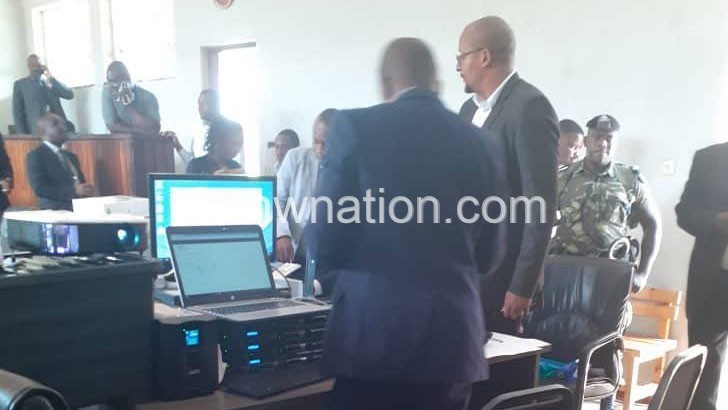Tech glitches stall elections case hearing
The Constitutional Court in Lilongwe yesterday failed to hear the testimony of Malawi Congress Party (MCP) information technology expert Daud Suleman due to alleged connectivity challenges to Malawi Electoral Commission (MEC) computer system and servers.
Suleman, a witness for MCP president and second petitioner in the case Lazarus Chakwera, alleges in his sworn affidavit that the election results were electronically manipulated by a hacker who, within milliseconds, ‘elected’ the country’s President in the May 21 Tripartite Elections, ignoring the votes people cast.

The five-judge panel of the High Court of Malawi sitting as the Constitutional Court on Tuesday evening gave Suleman the go-ahead to access MEC servers and computers to demonstrate how the system was allegedly manipulated to determine election results.
Their ruling followed a second application by MEC seeking to stop Chakwera’s witness from using information and communications technology equipment in court to amplify his testimony.
The equipment was all set in the courtroom yesterday, but network connectivity challenges stalled the process, prompting the court to adjourn at 3pm instead of the scheduled 6pm.
News that Suleman would access the MEC servers and computers to demonstrate how the election results could have been manipulated stirred excitement among many opposition sympathisers; hence, it was not surprising that they filled the public gallery in the courtroom.
When Attorney General Kalekeni Kaphale announced in court, after a closed door meeting between the judges and lawyers for both the respondents and petitioners, that the case would proceed this Thursday he was booed.
The five-judge panel of Healey Potani, Ivy Kamanga, Redson Kapindu, Dingiswayo Madise and Mike Tembo did not appear in court at all as they awaited the connectivity.
But in the chamber, the judges once again heard petitioners and respondents argue over the smallest of details, including security of the MEC platforms once again, according to some lawyers who attended the hearing. In the end, it all came to nothing as the Internet challenges forced the judges to call off the hearing for another day.
In an interview, Kaphale said even the court appreciated that the Internet service provider hired to have the MEC system up and running faced a tall order.
He said: “But as we move forward, we will not have the pressure that we have been feeling although there are one or two technical issues which have been raised. They are very technical which the two experts have identified.”
On how his team was committed to ensuring that the demonstration happened without hitches after MEC’s earlier objection, Kaphale said the electoral body was also not amused with the failure of the system.
On his part, Modecai Msisha, lead lawyer for Chakwera who alongside first petitioner Saulos Chilima of UTM Party are seeking nullification of the presidential election results over alleged irregularities in the results management system, said they had no choice but to accept the adjournment because it was clear the hitches would not be resolved in time.
“We have to accept what we have been told that TNM are still working on the VPN [virtual private network] connectivity. We will utilise the period in the interim to address some of the challenges that have been raised.
“But the main reason we failed to resume is the VPN. If that connectivity is established, we will be able to go. Whether we will accomplish all we want, will depend on other factors,” he said.
In its Tuesday judgement, the court dismissed MEC’s assertions that access to the system would compromise the security of elections in the future and will leave a financial burden on MEC.





